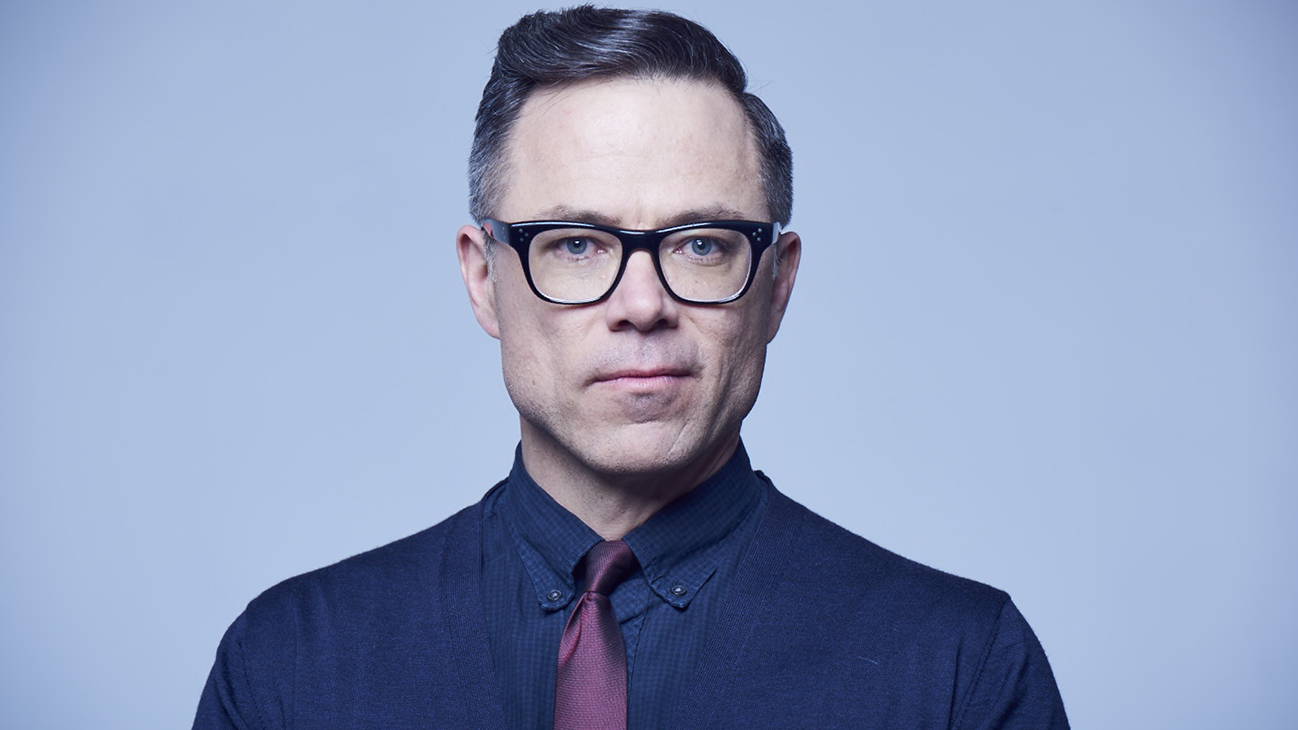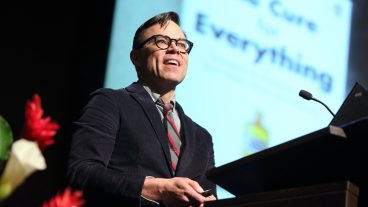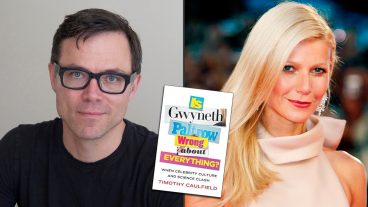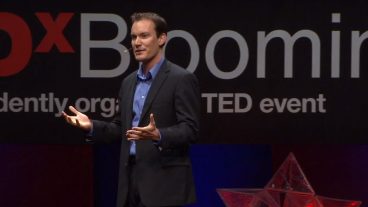The 2010s were truly the decade of bunk, writes Timothy Caulfield in a recent Globe and Mail opinion piece. The bestselling author of Is Gwyneth Paltrow Wrong About Everything and host of Netflix’s A User’s Guide to Cheating Death, Timothy has become a famed debunker of health and wellness myths and assumptions — from anti-vaxxers to crash diets and jade eggs.
This past decade has been a whirlwind of pseudoscience. It’s always existed, but today’s technology has exponentially increased its reach and influence. Timothy writes,
Social media advertising pushes anti-vaccine myths, celebrity health brands aggressively sell rubbish ideas and products, health-care providers and research institutions hype unproven therapies and there are wild conspiracy theories about everything from GMOs to fluoride to milk. And the media reporting on all these topics often adds more confusion than clarity.
But, there is good news. Along with the bunk comes an increase of governments, universities, and professional organizations recognizing the importance of the issue — the World Health Organization, writes Timothy, declared the spread of vaccine misinformation one of the top threats to public health.
So how can we make this new decade one that values truth over noise? Timothy shared a few strategies to get us started.
Recognize the Power of a Good Story
There is some evidence that humans are biologically predisposed (thanks, evolution) to respond to stories and anecdotes. This is one reason misinformation can have such a persuasive punch: it is often wrapped in a compelling narrative. And, unfortunately, those pushing bunk health products and ideas are particularly adept with anecdotes. They are used to hawk all sorts of science-free hokum, such as miracle cures for debilitating diseases, celebrity diets and anti-vaccine fear mongering…
Anecdotes are also often used as the primary rationale for science-free health-care services. A study I did with my colleague Alessandro Marcon found that those arguing for alternative medicine — in this case, chiropractic services — most often support their position with anecdotes, rather than science. Unfortunately, despite the fact that anecdotes should not be considered good evidence, they can be very convincing, as they can interfere with our ability to think scientifically.
Given this reality, the battle against health misinformation will require science advocates to use a variety of engaging and creative communication strategies, including stories, images and art, and shareable messages that are social-media friendly (remember MediaSmarts’ House Hippo campaign?). Science needs to be inserted into the broader conversation in a way that will allow it to compete with the narrative-filled misinformation circulating in popular culture. Absorbing and entertaining science stories are everywhere. Let’s use them.
Encourage Vigilance and Critical Thinking
While correcting misinformation is essential, the best way to stop it from having an adverse impact on public health is to encourage the application of critical thinking. Studies have consistently found that it is possible to teach such skills, even to the relatively young, and that this can help to inoculate individuals from the sway of health bunk. This should include providing basic tools to evaluate claims of efficacy, such as the reality that an anecdote or a testimonial is not good evidence, no matter how compelling.
Let’s encourage a culture of fact-checking and a reverence for accuracy. We need to constantly remind ourselves (and others) to think before sharing. In most situations, people do not intentionally spread misinformation because they have some malevolent agenda (although this certainly happens). In the kerfuffle of our daily lives, we are simply too distracted to pause and consider, for instance, the veracity of that post that claimed tanning your bum is health-enhancing (an actual story, and, no, it’s not a good health strategy). However, a recent study found that simply reminding people to think about the concept of accuracy can increase the quality of the news they share (please consider this a reminder).
Embrace Better Science, Better Health Care, and the Value of Trust
Rising public distrust of science institutions (44 per cent of Canadians think scientists are elitist), ideological polarization and frustration (right or not) with the healthcare system has created an environment that has allowed misinformation to thrive. And, of course, the spreading of misinformation has facilitated the growth of these kinds of sentiments, making people even more distrustful and receptive to misleading health information. A destructive feedback loop is creating a science-sucking vortex that is pulling us into an “all knowledge is relative and not to be trusted” Dark Age.
So, while we need to fight health misinformation with creative communication strategies and critical thinking, we also need to tackle the systemic issues that make the misinformation so intuitively appealing and believable. When people feel as if conventional healthcare providers ignore them, or they hear about pharmaceutical scandals, it is much easier for them to believe stories about the efficacy of alternative therapies and conspiracy theories about Big Pharma. When regulated health professionals are allowed to market unproven therapies, it may seem hypocritical to condemn the pseudoscience pushed by celebrity wellness gurus.
Good research, robust oversight, and scientific integrity are essential to the struggle against misinformation. Without good science and public trust in that science, I’m not sure if the fight against misinformation is winnable.
A Canada Research Chair in health law and policy, a professor in the Faculty of Law and the School of Public Health, and a research director of the Health Law Institute at the University of Alberta, Timothy Caulfield is an unrivalled communicator who breaks down pseudoscience with humour and facts.
Interested in learning more about Timothy and what he can bring to your next event? Email us at [email protected].




